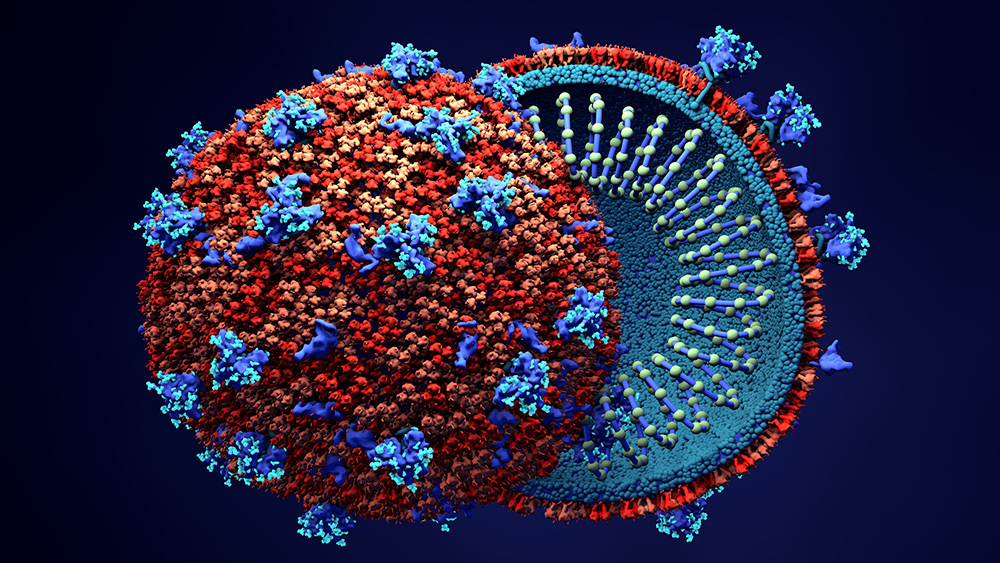Dodgy data firm behind retracted hydroxychloroquine study raises questions over haphazard decisions
06/11/2020 / By News Editors

A data analytics firm behind an influential – and now retracted Lancet study which concluded that Hydroxychloroquine is dangerous, has one employee and is headquartered in a residential house just west of Chicago. Yet its bogus data prompted the World Health Organization, the UK and France to halt clinical trial programs involving the controversial drug used to treat COVID-19.
(Article by Tyler Durden republished from ZeroHedge.com)
“There is an almighty rush to understand this new disease — everybody is trying to get data quickly,” said said Nicholas Day, a professor of tropical medicine at the University of Oxford’s branch in Bangkok. “All the journals are desperate to publish because there is a thirst to know about this disease. Therefore mistakes are made, stuff is rushed through.”
Desai claims his 12-year-old company uses machine learning and artificial intelligence to automate the process of data analytics – “which is the only way a task like this is even possible,” he told Bloomberg.
“It is important to understand the nature of this database,” he added. “We are not responsible for the source data, thus the labor intensive task required for exporting the data from an EHR (electronic health record), converting it into the format required by our data dictionary, and fully de-identifying the data is done by the healthcare partner. Surgisphere does not reconcile languages or coding systems.”
Meanwhile, a Sofia, Bulgaria-based computer scientist who performed freelance programming for Surgisphere two years ago says he has “no clue about their access to medical data.”
Key questions over Desai’s data include;
- How did this tiny firm operating out of a guy’s house procure an “unrealistically high number of electronic patient records in Africa” as well as their European figures “given the continent’s strict rules around health privacy,” according to Bloomberg?
- Why does Desai’s dataset have more patients than would appear likely given the dates and spread of COVID-19, particularly in the UK?
- Why aren’t any artificial intelligence or machine learning experts listed in the now-retracted Lancet paper?
- Why won’t Desai answer questions over whether his company has a board or a scientific committee?
- Why does their data used in the retracted New England Journal of Medicine study include ethnic information on French patients such as skin color, when it’s illegal to collect such data in France, and typically requires approval by the CNIL privacy watchdog (which told Bloomberg it hadn’t received any requests from Surgisphere).
According to Desai, the official figures “could have been under-reported early on during the pandemic, thus leading to the appearance that we are over-reporting numbers when in actuality we are capturing the true total number of Covid-19 infections at the hospital level, which is the true source for this data.”
Still, the Surgisphere studies were highly unusual in that they claimed to quickly assemble data from hundreds of anonymous hospitals, using numerous electronic medical records systems, under different privacy laws across many countries on multiple continents. And even more strangely, for studies that claimed a massive feat of data integration in record-setting time, they had no biostatisticians listed as authors that might have helped pull all this data together.
More typically, when medical scientists do such studies they rely on clearly named and reputable government databases in one country or state that researchers are able to access.
Surgisphere said its information comes from “a registry, with data obtained from electronic health records” of a “very specific group of hospitalized patients with Covid-19.” The company “directly integrates with the EHRs of our hospital customers,” and “has permission to include these hospitals’ EHR data in its query-able registry/database of real-world, real-time patient encounters.” –Bloomberg
Yet, the company won’t provide the names of companies or institutions which have provided data.
Desai also claims on his website that he has worked with Scotland’s National Health Service ‘to find data-driven solutions to high rates of post-surgical complications and infections,’ when no such relationship exists.
“At no point have Surgisphere had any access to NHS Scotland data,” they told Bloomberg in an email.
Perhaps the most disturbing aspect of it all is that the WHO and two entire countries halted trials of a potentially life-saving drug following the results of a single study that they failed to independently verify.
Read more at: ZeroHedge.com
Tagged Under: Big Pharma, Chinese Virus, clinical trial, coronavirus, covid-19, cpp virus, hcq, health, hydroxychloroquine, lies, medical journals, rigged, science journals, The Lancet, wuhan virus

















